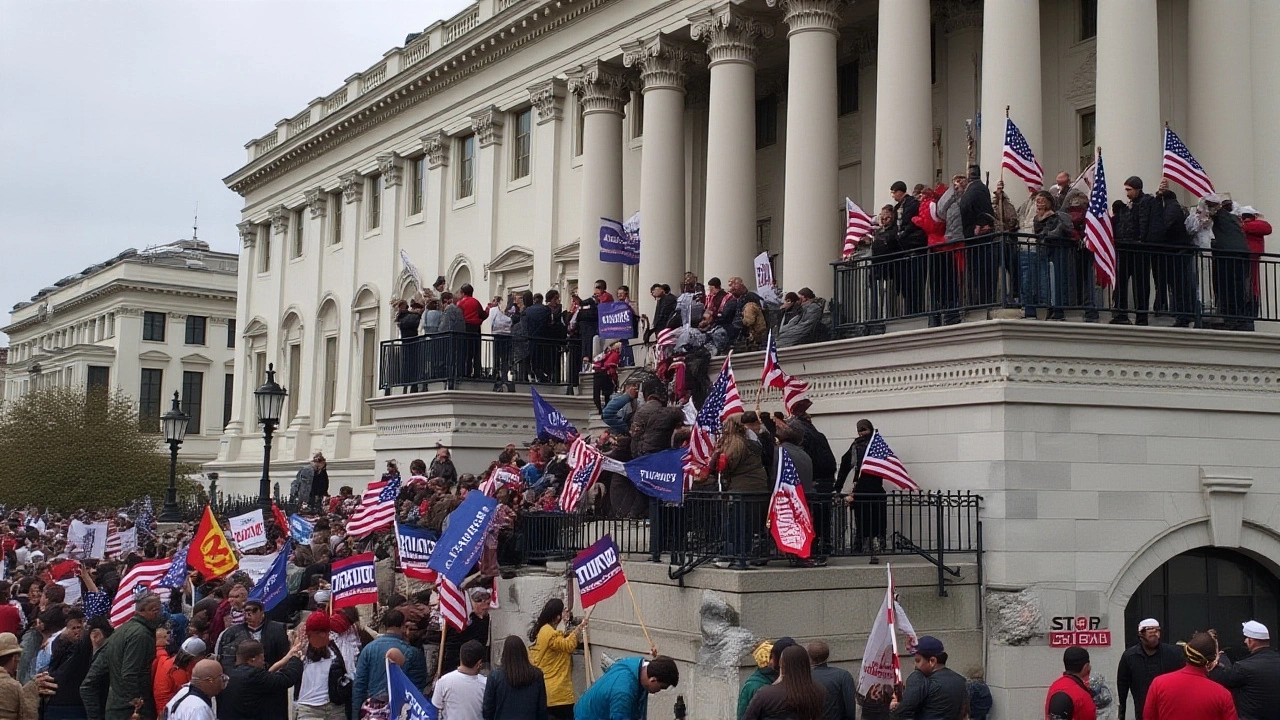Antifa – definice, principy a aktuální souvislosti
When talking about Antifa, antifascistické hnutí, které se zaměřuje na boj proti pravicovým extremistům a autoritářským tendencím. Also known as antifascistická aktivisté, it operates mostly through street‑level actions and community organizing.
Antifa doesn't belong to a single party; it is a loose network of groups that share a common goal – stop the rise of fascism. This makes the movement highly decentralized, which in turn influences how protests are organized and how authorities react. The protest, public demonstration aimed at expressing dissent becomes the primary tool, while the police, state body responsible for public order often find themselves in direct confrontation with activists.
One semantic triple that emerges from this relationship is: Antifa encompasses protest tactics; protest requires mobilization skills; and police influence the dynamics of Antifa actions. Another important connection is between Antifa and politický aktivismus, engagement in political processes to promote change. Political activism fuels the narrative, while Antifa provides a specific ideological lens.
Klíčové souvislosti, které vám pomohou lépe pochopit Antifu
First, understand the link between Antifa and extremismus, radicalní ideologie, která může být pravicová i levicová. Antifa defines itself as anti‑extremist, but critics often label it as extremist itself. This tension shapes public perception and media coverage. Second, the role of security, state measures to protect citizens cannot be ignored; security policies can either curb or unintentionally provoke activist activity.
Looking at recent news, we see how Antifa‑related incidents intersect with broader political stories – from debates about police funding to discussions on far‑right rallies. For example, the recent clash involving a Czech MP in a bar sparked a wave of commentary about activist safety and police accountability. Such events illustrate how Antifa moves within a larger ecosystem of political parties, law‑enforcement agencies, and public opinion.
In practice, Antifa groups often coordinate via social media, organize street actions, and produce flyers that outline their stance against fascism. Their tactics range from peaceful marches to more confrontational blockades. Regardless of method, the core idea remains: prevent the spread of extremist ideologies. This goal ties back to the semantic triple – Antifa requires community support, community support enables effective protest, and effective protest influences policy discussions.
Our collection below brings together articles that touch on these themes. You'll find analyses of police responses, reports on political parties' positions, and insights into how activist movements shape Czech public discourse. Dive in to see how Antifa interacts with the political landscape, how authorities react, and what the future might hold for this dynamic movement.

Antifa útok na Kapitol? Jak se česká dezinformační vlna šíří
Dezinformační video „Antifa útočila na Kapitol“ od Epoch Times ČR rychle získalo téměř 25 000 zhlédnutí, šíří falešný narativ a podkopává důvěru v demokratické instituce.